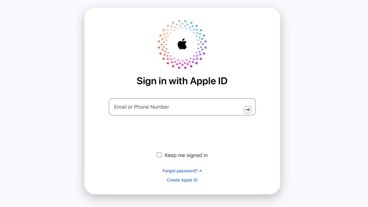T-Mobile CEO says frequency band issue is 'key reason' for lack of iPhone
Humm said in an interview with AllThingsD that T-Mobile's unique frequency bands are the main factor preventing it from bringing the iPhone to its customers.
“The key reason we didn’t have the iPhone in the past is we are on different band than globally the market was,†he said. “That is something which will change over time. Chipsets are also evolving to be able to allow for more bands.â€
The executive also reiterated that the decision is ultimately up to Apple. T-Mobile Chief Marketing Officer Cole Brodman had said last fall that the company would "love to have" the iPhone, noting that "the ball is in Apple's court."
Though some unlocked iPhone users on T-Mobile benefitted from a network adjustment last month that allowed them to take advantage of 3G speeds from the carrier, the scenario is said to be extremely rare. Unlocked GSM iPhones are compatible with T-Mobile's voice network, but are generally unable to make use of 3G functionality.
The fourth largest carrier in the U.S. is struggling to regroup after AT&T withdrew its bid last month to acquire the Deutsche Telekom subsidiary.
Federal regulators had opposed the acquisition on the grounds that AT&T hadn't provided sufficient evidence of benefits that would outweigh the removal of a competitor from the U.S. wireless market. AT&T paid T-Mobile a $4 billion break-up fee as a result of the failed $39 billion deal, which was first announced last March.
Humm confirmed on Tuesday that there is no "second AT&T deal" in the wings for the company, though he did note that the cash, spectrum and data-roaming agreement it has received from AT&T has been a boon. Moving forward, the CEO said T-Mobile will resume its advertising campaign that is critical of its competitors, positioning itself as a consumer-friendly network.
In the wake of the abortive merger, T-Mobile has found itself on the outside after rivals Verizon and Sprint began offering Apple's iPhone last year.
Verizon recently revealed that it had sold 4.2 million iPhones in the fourth quarter of 2011, doubling its sales from the previous quarter. By comparison, T-Mobile reported 10.1 million customers using 3G/4G smartphones in the third quarter of 2011.
T-Mobile could find itself falling even further behind as its larger competitors make the transition to 4G LTE. For the time being, T-Mobile plans to focus on its HSPA+ network, which it advertises as "4G," before eventually moving to LTE.
“We’re not against LTE,†Humm said. “We will over time evolve to LTE. We just don’t see a need to move there very fast.â€
Recent reports have suggested that Apple could release an LTE-compatible iPhone later this year. The company has said it is waiting for LTE chipsets to improve before implementing them in its handsets.
 Josh Ong
Josh Ong










 Mike Wuerthele
Mike Wuerthele

 Malcolm Owen
Malcolm Owen
 Chip Loder
Chip Loder

 William Gallagher
William Gallagher
 Christine McKee
Christine McKee
 Michael Stroup
Michael Stroup






